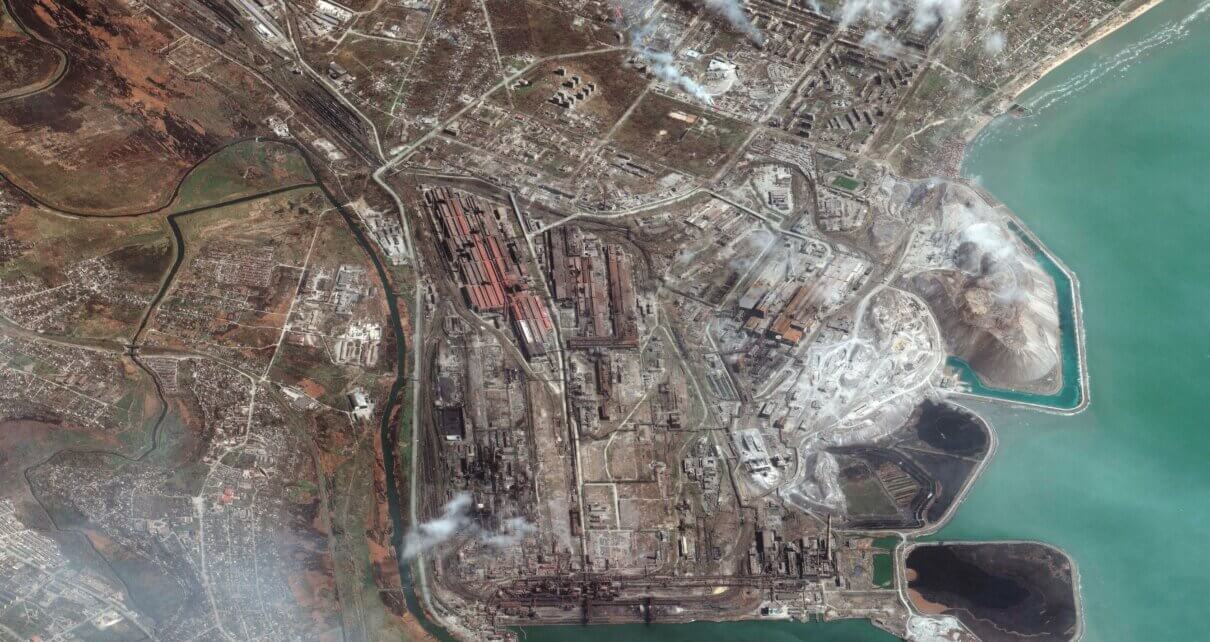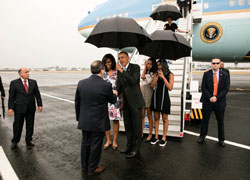As Russian forces begin a new offensive centered around the Ukrainian oblasts of Luhansk and Donetsk, The Outlook has conducted an interview with Katerina Prokopishina, a Ukrainian Attorney investigating Russian war crimes currently residing in Odessa, Ukraine. Professsor Polina Amburg of Monmouth University, whose perspective on the Ukrainian war we’ve shared in the last issue, served as the contact for our interviewee this week. Our questions to Katerina Prokopishina ranged from asking about details pertaining to specific war crimes, potential charges and ways the international and Ukrainian legal community plan on bringing forth these charges, how Ukraine’s legal community is protecting itself from Russian agents and disinformation, alongside the general mentality of the communities impacted by Russian war crimes.
International Criminal Court (ICC) headquartered in the Hague, Netherlands, opened up an investigation into crimes committed in Ukraine on March 2, according to Associated Press. Prokopishina said, “The aggressors committed enormous amounts of crimes since the start of the military invasion on Ukrainian territories. These crimes ranged from military offenses, robberies, and theft. In the course of the on-going armed conflict, the international humanitarian laws were violated.”
The latest news reports suggest that Russia has been using various types of weapons including cluster bombs, that are designed to cause maximum damage to the human targets including civilians. In 2008 an international treaty known as The Convention on Cluster Munitions (CCM) that bans usage transfer, production, and stockpiling of cluster bombs was signed. However, neither Russia, nor Ukraine, nor United States are signatories to the treaty.
“The Russian Armed Forces used indiscriminate weapons, such as hailstones, clusters, and phosphorus bombs. They also shot civilians and carried out air and missile strikes on civilian buildings, such as schools, apartments, railway stations, and religious institutions.”
Hailstone weapons are a form of rocket artillery, while phosphorous bombs are categorized as a chemical weapon. Prokopishina shared several examples of Russian war crimes.
“Terrifying examples of these crimes are the Mariupol Drama-Theater airstrike, and the shelling of the railroad station in Kramatorsk. Attacks on railroad stations in Kyiv and L’viv, alongside attacks on Kharkiv and Mykolaiv. Because of these airstrikes, many cities are erased from the face of the Earth.”
Media have heavily reported on the terrible conditions in the besieged city of Mariupol and Popasnoe. These cities have become infamous in the West for the suffering inflicted on the civilian population by the Russian military. “The most atrocious are Mariupol and Popasnoe, where no building is left intact and people are forced to live in bomb shelters and basements without food, electricity, or gas. The wounded cannot get medical attention because there are no medical supplies. People cannot properly bury their loved ones because of ongoing shelling,” said Prokopishina.
Outside of the physical destruction of Ukrainian cities, human stories to these crimes are the most distressing. Even after agreements between Ukrainian and Russian sides to cease fire to allow civilians to evacuate, Russian military failed to provide safe zones for evacuation.
Prokopishina explained, “During the evacuation from Starobelsk, Lugansk region, the Russian military opened fire on evacuation buses, killing and wounding civilians. Failure to provide safe evacuation corridors has led to humanitarian crises across several Ukrainian cities.”
As in many wars, gender violence has been used against civilian population, particularly women and girls, but sometimes even men find themselves victims of sexual violence.
“Russian soldiers torture prisoners, and sexually assault women and children. As of today (April 18), there is a record of the sexual assault of a man by a Russian soldier during the occupation of the Kyiv region,” said Prokopishina.
The grim reality of war crimes is present in many regions of Ukraine and civilians of all ages are made into targets. Prokopishina said, “They (the Russian military) shoot at civilians and run over people’s cars with tanks preventing refugees from escaping the war. In the Kherson region, Ukrainian activists are being tortured. Residents report people are taken out for interrogations, extorted for money, and sexually assaulted. After the (eventual) liberation, the scale of crimes in the Kherson region will be the second Bucha and Irpin.”
In our previous coverage of the war in Ukraine, we’ve mentioned Russian “filtration camps,” where these aforementioned interrogations are taking place, and mass deportations of Ukrainians to Russia.
Prokopishina elaborated, “Our citizens are deported against their will from occupied territories to Russia. As of today, the reports estimate over 500,000 people have been taken there. Children are being placed in special camps. And this is a shortlist of crimes committed against Ukrainian civilians.”
The violence against Ukrainian children has been widespread, and not limited to kidnappings and placement in camps. Prokopishina explains that “202 children died in Ukraine, and more than 500 have been injured.” Additionally, activists, aid workers, and members of the media have been killed or injured.
“The deaths of 21 media representatives have been officially confirmed. It is impossible to determine the exact number of dead civilians. Unfortunately, with every day of military aggression, these numbers are growing, because every day new horrific crimes against Ukrainians are being committed…I think the whole world will be shocked more by the atrocities as more Ukrainian cities and villages are being liberated.” To top it off, Prokopishina shared an official report, which state that, “there are over 900 victims of crimes in liberated Ukrainian settlements.”
War also exists within the information space, and it is usually fought with tools of propaganda and disinformation. Prokopishina discussed how the information war is fought in Ukraine.
“Today every Ukrainian is fighting with Russian propaganda. They try to deliver a message to the citizens of Russia that their silence is the agreement with the atrocities inflicted by the Russian military. This silence makes them accomplices. Ukrainians woke up on February 24 to the sounds of explosions. Because the invaders came to Ukraine to kill, and erase our history, our language, and our ordinary lives with plans for the future. Russian propaganda cannot affect the people who live in Ukraine in any possible way. People know how easy it is to fight disinformation and to look for facts in the era of digital technology. “
One question many may be asking is how will Ukraine and the international community bring the perpetrators of these crimes to justice. And how will they prove who did it? Prokopishina explained the process.
“The legal community of Ukraine works closely with civil and military Ukrainian and European institutions, such as the UN, OSCE, and the International Criminal Court, to bring to light war crimes committed by the aggressors on Ukrainian territories. They collect evidence and documents of these terrible crimes to present in international courts and to share with the world that Ukrainians are not only fighting for their freedom but the independence and sovereignty of other countries. Today it is easier to record military crimes than it was for example in Syria, Chechnya, or Georgia. Today this war practically takes place online. The Ukrainian authorities, international experts, survivors’ testimonies, satellite imagery recording, and surveillance cameras record all of the abovementioned crimes. In addition, volunteers representing civilian organizations assist with interviewing the victims. After that, the collected reports are transferred to law enforcement agencies and international courts. Facial recognition programs and social networks facilitate the identification of war criminals. For example, all perpetrators of the crimes in Bucha and Irpin were identified.”
When it comes to physically bringing these perpetrators to trial, Prokopishina expressed that, “There will certainly be difficulties bringing perpetrators to justice. It will be unlikely that the aggressor country will voluntarily extradite war criminals. It will be equal to admitting that the highest officials of Russia have committed war crimes. Considering that the Russian leadership managed to avoid the responsibility for the crimes committed in Syria, Chechnya, Georgia, Moldova, and African countries, the legal community of Ukraine will initiate collaboration with international organizations to create a new system of legal mechanisms for bringing war criminals to justice. The existing international system of peace and security is not effective, as evident by the current crimes in Ukraine witnessed by the world.”
But as we have seen with the past war crimes in other countries such as Rwanda or Bosnia and Herzegovina, those can be prosecuted in perpetuity. “War crimes have no statute of limitation. Suffice it to recall how criminals were searched and prosecuted after World War II. Therefore, there is a firm conviction that perpetrators committing crimes on Ukrainian territories will be convicted by the law and Russian government leaders will face a military tribunal,” Prokopishina explained.



